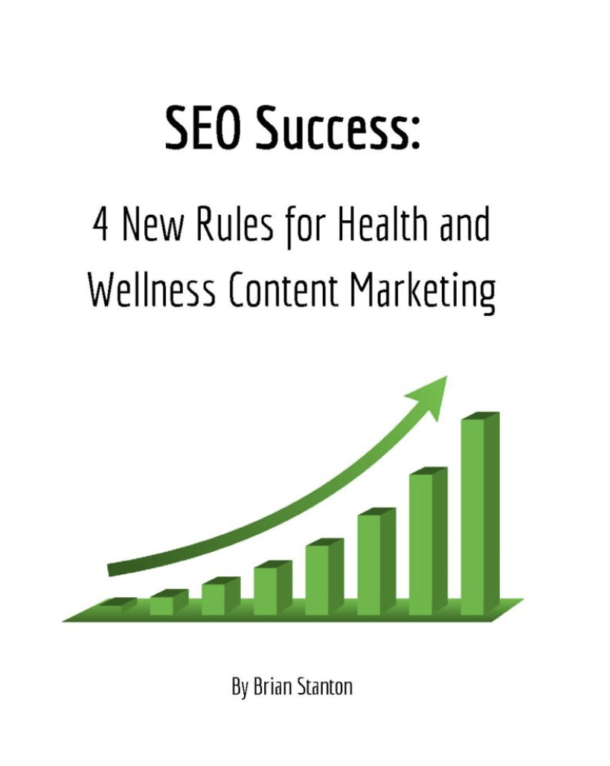The FTC demands quality science to support health claims, and so do consumers. Communicating that science builds trust so your brand can grow like a woodchuck in a field of fresh clover.
A little background…
In 2023, the FTC enforced $330 million in refunds to U.S. consumers who bought non-compliant health products. You don’t want to be the next statistic, but getting the science right isn’t just about pleasing the government.
Wellness consumers also want quality science. It’s their #1 buying factor, per McKinsey. And understanding and conveying this science requires expertise.
This guide will cover:
-
The latest FTC guidance and crackdowns on wellness brands
-
If AI can help you stay compliant
-
Should you hire a lawyer?
-
The difference between FTC and FDA regulation
-
What you need to stay compliant and build trust with savvy consumers
-
And more
Let’s dig in.
Where Wellness Brands Slip
The FTC demands strong science to support health claims.
Recent 2022 guidance says that advertisements for health products must be 1) truthful and 2) backed by quality science (if making health claims).
What changed vs. the old guidance? A key update was the gold-standard type of science required to support health claims and avoid penalties:
“As a general matter, substantiation of health-related benefits will need to be in the form of randomized, controlled human clinical testing to meet the competent and reliable scientific standard.”
The FTC:
-
Reviews sample size, duration, statistical methods, and other study details
-
Wants brands to include conflicting studies to balance claims
-
Doesn’t want to see animal or test-tube studies
-
Isn’t satisfied by expert testimonials, which count as health claims
Bottom line? To ensure your claims are acceptable, you need people who can understand and communicate scientific research per the guidelines. That’s the piece many wellness brands overlook.
FTC Crackdowns on Health Brands
The FTC penalizes non-compliant brands with steep fines and bans on future sales.
Recent examples:
-
Over $1.1 million in refunds for three longevity and pain supplements
-
$536,000 in refunds of Sobrenix, a supplement claiming to reduce alcohol consumption
-
Millions in refunds for false weight-loss claims from Kevin Trudeau
-
Two companies banned from selling supplements marketed to treat heart disease
-
A warning letter to 10 companies marketing supplements for diabetes
-
Late 2024 crackdown on Prevagen, a memory-loss supplement
These are just a few cases. The FTC nails hundreds of companies every year.
If you don’t want to get nailed, market your product with the right science and explain it in a way that meets the standard.
FTC Compliance FAQs
Who needs to watch out?
Anyone involved in marketing or promoting a health product. That includes retailers and resellers.
Do you need a lawyer?
Maybe, but not always.
Recall what you need for FTC compliance:
-
Truthful health claims
-
Supported by gold-standard science
Interpreting the science is the crucial skill. Most lawyers can’t help you there.
Can AI help you stay FTC compliant?
Not as a primary solution.
Don’t trust folks pitching AI as a compliance tool. The FTC is already cracking down on deceptive AI claims.
AI can help with research and idea generation. But ensuring that science meets FTC guidelines and resonates with savvy consumers requires human judgment. That won’t change.
What’s the difference between FDA and FTC regulation?
The FDA checks if a brand’s claims keep the product in the correct regulatory category. It rarely enforces civil penalties.
The FTC is the watchdog. It cracks down on dishonest or unsupported claims.
Is FTC enforcement decreasing?
Unclear, but signs point to no. The FTC has been more aggressive in enforcing some policies since the new administration. Don’t expect any breaks.
Next Steps
Effective marketing of quality science keeps the FTC satisfied and drives consumers to buy wellness products.
Stay compliant by:
-
Understanding the strength of your scientific support
-
Communicating that science clearly and without exaggeration
-
Avoiding cherry-picked evidence
-
Keeping a repeatable process for claim review
-
Staying aligned with the latest FTC expectations
Shoppers want real science, not hype. When you get the science right and communicate it well, everything downstream gets easier. And you avoid FTC headaches, too.
If you want help tightening your science messaging, planning a compliant content strategy, or building your authority, let’s talk.

